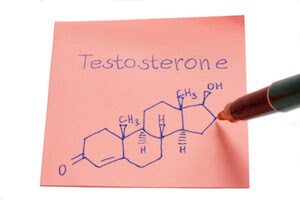Males with Low Testosterone And How it Affects the Libido
Common Question: Can I have low Testosterone and still have a sex drive?
Men typically ignore their symptoms of low testosterone or often referred to as low-T. They think that if they have a sex drive and can still get an erection that they have a good Testosterone level. Things could not be further from the truth.
Common Myth: Your Testosterone levels are good if you still have a sex drive and can still get an erection.
Low Testosterone can show up in many ways. You can have low energy, poor focus, feel grumpy or irritable, and/or have trouble sleeping. You may have trouble recovering from workouts and have problems building muscle. There may be a general feeling of not being at your best. And yet, you may still be able to get erections and have a sex drive.
Common Signs of Low-T:
- Low Energy
- Lack of Focus
- Just Not Feeling Normal
- Irritability/Grumpy
 Sleep Apnea
Sleep Apnea
At New Leaf Wellness, we have found that many men do not realize that a low Testosterone can be the cause of their symptoms. Optimal Testosterone levels are important for your overall health and vitality. Testosterone performs a wide variety of functions and you need an optimal level to function at your best. You can have sub-optimal Testosterone that is affecting your body and still be having erections and have a libido.
If you feel that you are not functioning at an optimal level you will want to get your hormones evaluated by your New Leaf Wellness Hormone Specialist.










